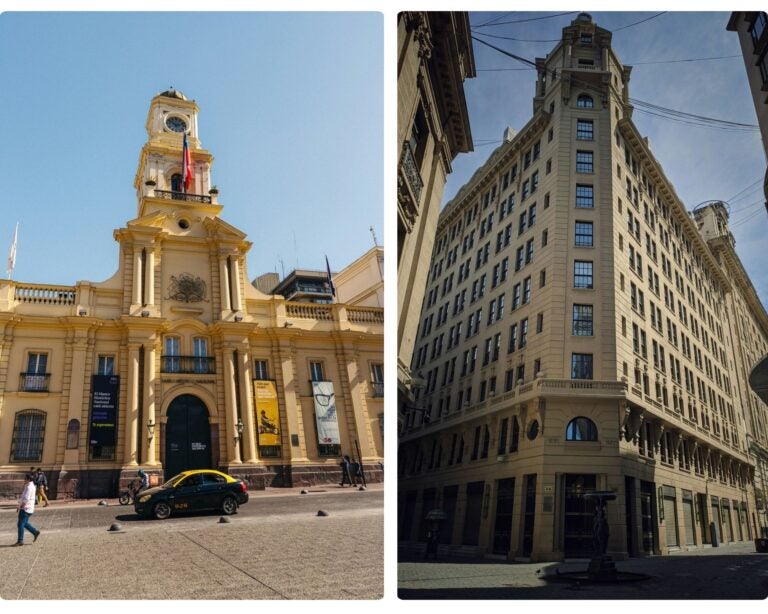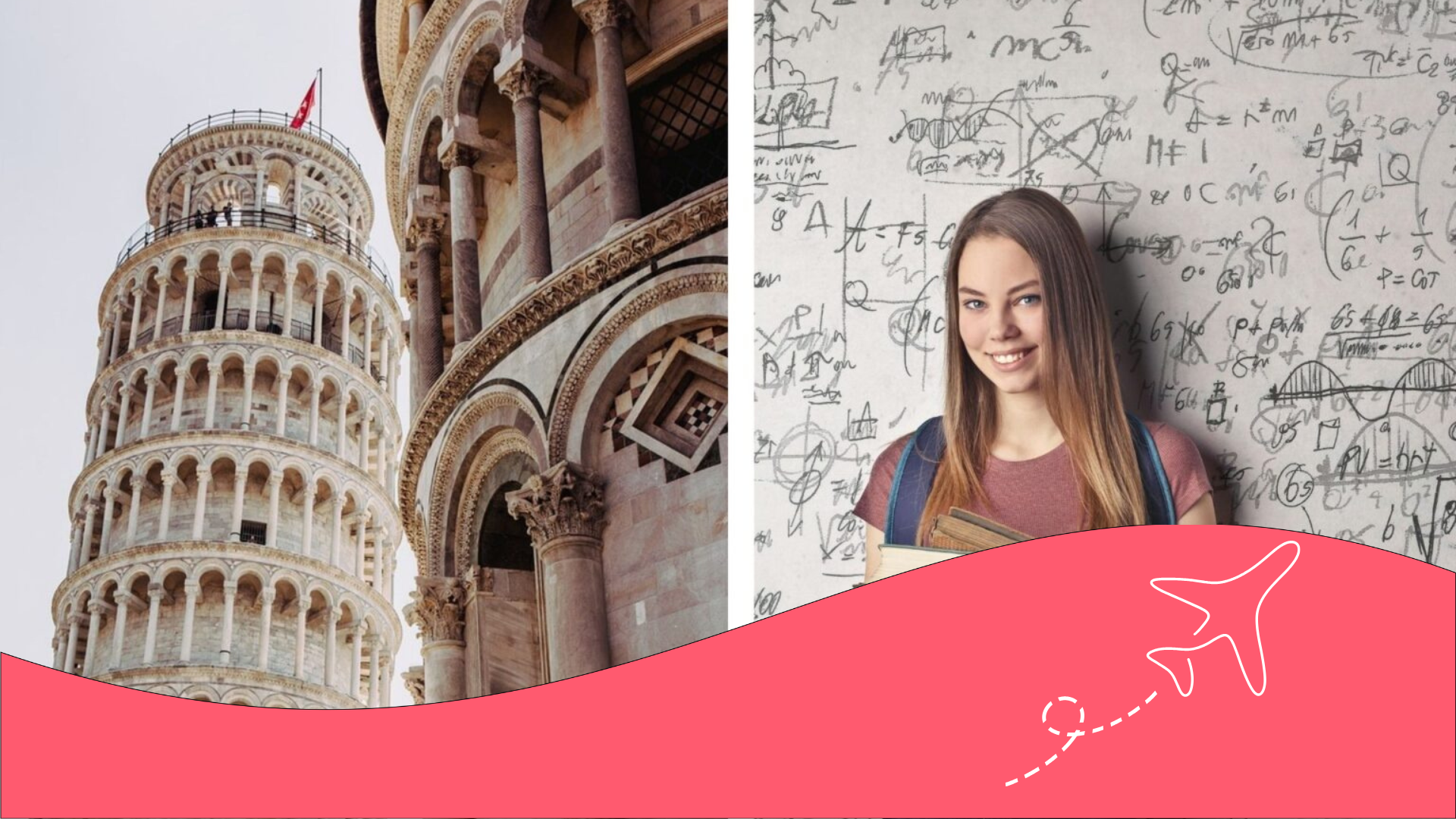How to study in Chile as an international student?
Read on to learn how to study in Chile as an international student, including step-by-step instructions for studying online.
Chile is an appealing destination for students who want to study and live abroad for a while. Its education system stands out across Latin America for its constant innovation and high academic standards, particularly in fields like engineering, social sciences, and sustainability. If you’re looking to study in Chile as an international student, this guide will give you all the essential information about the Chilean education system so you can make an informed decision about studying in Chile.
Blending tradition, modern life, and vibrant culture, Chile has become home to many universities that stand out for their strong academic programs and reputation. In this guide, we’ll walk you through how to apply to these universities and share some tips to make your study experience in Chile smoother and more enjoyable. If you are planning to stay abroad for an extended period, staying connected is essential, and Holafly’s monthly plans make it simple and worry free.
If your stay is shorter than a month, you can choose Holafly’s eSIM for Chile, which gives you unlimited data without roaming charges for exactly the number of days you need.
How does the education system work in Chile?
Chile’s education system is structured across several levels designed to provide a well-rounded learning experience. Below are some of its main features.
1. Primary and secondary education
In Chile, primary education lasts eight years and is followed by four years of secondary school, similar to high school in other countries. Upon completing this stage, students receive a secondary education certificate, which is required to pursue higher studies.
2. Higher education
Higher education in Chile includes technical, undergraduate, and graduate programs. There are three main types of institutions:
- Universities: Offer bachelor’s degrees, engineering degrees, and postgraduate programs (master’s and doctoral degrees).
- Professional institutes (IP): Focus on professional technical training in various areas.
- Technical training centers (CFT): Offer short-term technical degrees, generally lasting between two and three years.
Duration of university programs:
- Undergraduate: University programs in Chile typically last between four and six years, depending on the field of study. For instance, degrees in engineering or medicine usually take longer to complete.
- Graduate: Master’s programs usually take one to two years to complete, while doctoral programs can last anywhere from three to five years.
Educational quality and accreditation:
Chile has an accreditation system that ensures the quality of its universities and academic programs. International students are advised to choose accredited institutions to make sure their degrees are recognized worldwide.
Start of classes and academic calendar:
The academic calendar in Chile generally begins in March and is divided into two semesters:
- First semester: March to July.
- Second semester: August to December.
Understanding these basic characteristics is essential for planning your studies in Chile and adapting to the local education system.
Requirements for studying in Chile as a foreigner
If you are interested in studying in Chile, there are certain requirements you need to meet to secure your admission and stay in the country legally. Here is a list of the essentials.
1. Certificate of previous studies
You will need a certificate verifying your previous education, such as a high school diploma or a university degree, depending on the program you are applying for. This document must be legalized or apostilled in your home country.
2. Translation of documents
If your certificates are in a language other than Spanish, you will need to have them translated by an official translator recognized by the Chilean authorities.
3. Letter of admission
You must be accepted into a Chilean higher education institution. Once admitted, the university or institute will provide you with an acceptance letter, which is a key document for applying for your student visa.
4. Student visa
To study in Chile as an international student, you need to apply for a student visa at the Chilean consulate in your country. The main requirements include:
- Valid passport.
- Admission letter from the educational institution.
- Proof of financial solvency.
- Criminal record certificate.
- Medical examination or health certificate.
5. Financial solvency
You will need to prove that you can support yourself financially during your stay in Chile, covering tuition, accommodation, and living costs. This can be done with bank statements, sponsorship letters, or proof of a scholarship.
6. International medical insurance
International students are required to have health insurance that covers medical emergencies, hospitalization, and repatriation. Make sure to choose a policy that is valid in Chile.

7. Proficiency in Spanish
Although a few universities offer programs in English, most classes in Chile are taught in Spanish. If your Spanish skills are not strong, it’s a good idea to provide a language certificate like the DELE or take an intensive course before you begin your studies.
8. Other specific requirements of the institution
Each university or institution may require additional documents, such as essays, recommendation letters, or a portfolio for arts programs. Preparing these materials in advance can help speed up the admissions process and let you focus on your studies.
Steps to study in Chile as a foreigner
Studying in Chile as an international student may seem challenging, but with proper planning and the right steps, it can be done smoothly. In this section, you will find a step-by-step guide to help you organize everything, from exploring academic options to settling in the country and starting your studies.
1. Evaluate universities and courses in Chile
The first step to studying in Chile is to research and evaluate the available universities and programs. Chile offers internationally recognized universities and a wide range of degrees and specializations in fields such as science, engineering, humanities, and business.
Recommendations for evaluating academic options:
- Research academic prestige: Check international rankings, such as QS or THE, to find universities that stand out in your field of interest.
- Analyze the educational offerings: Look into the curriculum of the programs or degrees that interest you to make sure they align with your expectations and career goals.
- Verify accreditation: Choose universities or institutes accredited by the National Accreditation Commission (CNA) to ensure a high standard of education.
- Ask about courses in Spanish and English: While most programs are taught in Spanish, some universities offer courses in English for international students.
- Consider the location: Consider the cities where the universities are located, as factors like cost of living, climate, and job opportunities can impact your decision.
2. Review options for financing studies in Chile
The cost of studying in Chile can vary depending on the institution and program, so it’s important to have a financial plan to cover tuition, housing, and other related expenses.
Available financing options:
- Scholarships for international students: Some Chilean universities offer partial or full scholarships to international students, such as Academic Excellence scholarships or programs tailored for students from neighboring countries.
- Educational loans: Explore student loan options in your home country that allow you to finance your studies abroad.
- Sponsorship or mentoring: Look for organizations or companies that provide financial support to outstanding students in specific fields.
- Government scholarships: Some governments offer bilateral scholarships to promote academic exchange.
- Work and study programs: Some visas allow part-time work, which can help you supplement your income while studying.
It’s important to research deadlines and requirements ahead of time so you don’t miss any opportunities. For more details, check out our guide on scholarships for studying in Chile.
3. Apply to a study program in Chile
Once you have chosen the university and program you want, the next step is to apply. The admissions process can vary by institution, but it generally follows these steps:
1. Review the admission requirements:
Each university sets its own requirements, which may include:
- Certificates of previous studies (legalized and apostilled).
- Motivation letter explaining why you want to study in Chile.
- Academic or professional recommendation letters.
- Language certificates (if applicable).
2. Complete the application form:
Many universities let you submit your application online through their official websites. Be sure to provide all the requested information and include any required documents.
3. Pay the application fee:
Some universities charge an administrative fee to process your application.
4. Take additional exams (if applicable):
Depending on the program, you may need to take entrance exams or interviews.
5. Wait for the acceptance letter:
If you meet all the requirements, you will receive an admission letter, which will be essential for the next steps, such as applying for a student visa.

4. Apply for a visa to study in Chile
To study in Chile as an international student, you must obtain a student visa before entering the country. This application needs to be submitted at the Chilean consulate closest to where you live.
Documents required for a student visa:
- Valid passport with at least six months’ validity.
- Letter of acceptance issued by the Chilean university or institution.
- Proof of financial solvency (bank statements, sponsorship letters, or scholarships).
- Criminal record certificate issued in your country of origin.
- Medical certificate confirming that you are in good health.
- Recent passport-size photograph.
Application process:
- Schedule an appointment at the Chilean consulate.
- Submit the required documents and complete the application form.
- Pay the corresponding fees, which may vary depending on your nationality.
- Wait for the visa to be approved, which usually takes between two and four weeks.
Once your student visa is approved, you’ll be ready to move to Chile and start your academic journey. For more information, check out our guide on student visas for Chile.
5. Moving to Chile
The final step before starting your studies is planning your move to Chile. This includes arranging your travel, finding a place to live, and getting familiar with life in the country.
Tips for a successful move:
- Student accommodation in Chile:
- Look for housing options close to your university. Common choices include student residences, shared apartments, or staying with a host family.
- Research rental platforms such as Portalinmobiliario or Yapo to find prices and conditions.
- Transportation as a foreigner in Chile:
- Chile has efficient public transportation systems in large cities such as Santiago, Valparaíso, and Concepción.
- Consider getting a transportation card (such as the Bip! in Santiago) to save money on travel.
- Cultural adaptation:
- Learn about local customs and cultural practices to ease your integration.
- Familiarize yourself with the use of the Chilean peso and basic living costs, such as food, utilities, and entertainment.
- Additional documentation:
- When you arrive, you will need to register with the Chilean Investigative Police (PDI) and obtain a RUT, a tax identification number required for basic procedures in the country.
Planning your move carefully will help you start classes smoothly and enjoy your time as a student in Chile. By following these steps, you can stay organized throughout the entire process, from picking a university to settling into life in the country. This guide is here to help you reach your academic goals with confidence.
How much does it cost to study in Chile as a foreigner?
Studying in Chile as an international student means taking into account both tuition costs and living expenses. While the cost of living can vary depending on the city and your personal needs, here is an overview of average prices to help you plan your budget.
1. Student housing
Housing is one of the biggest expenses for international students. Options include:
- University residences: From $200 to $400 per month, depending on the university and location.
- Shared apartments: Costs typically range from $250 to $500 per person per month in cities such as Santiago or Valparaíso.
- Individual apartment rentals: Approximately $400 to $800 per month, depending on size and location.
- Host families: Offer a unique cultural experience with costs ranging from $300 to $600 per month, including meals.
2. Transportation
Public transportation in Chile is efficient and affordable, especially in cities such as Santiago, where there is an extensive metro and bus system.
- Bip! Card (Santiago): $0.90 per bus or subway trip.
- Monthly pass: Approximately $35 for students.
- Taxis or ride-hailing apps: $5 to $15 for short trips.
- Bicycles: Some cities have bike rental systems starting at $10 per month.
3. Food in Chile
The cost of food can be adjusted to different budgets:
- Eating at home: A student can spend between $100 and $200 per month on basic food items if they cook at home.
- Eating out: Budget meals at restaurants typically cost between $6-10, while dinners at more upscale places can easily exceed $20.
- Local markets: Fruit, vegetables, and other products are usually cheaper at markets than in supermarkets.
4. Education costs in Chile
The cost of degrees and courses varies widely depending on the institution and level of education.
- Undergraduate degrees: Between $3,000 and $8,000 per year at public universities. Private universities can exceed $10,000.
- Postgraduate programs: Costs range from $5,000 to $12,000, depending on the specialty.
- Short courses or diploma programs: These can cost between $500 and $3,000.
- Study materials: Books and additional materials can cost between $200 and $500 per year.
When and how to get degrees and courses recognized in Chile?
Degree recognition is an important step for anyone looking to continue their studies in Chile or work professionally in the country. This process ensures that your foreign qualifications are officially recognized.
When is it necessary to have a degree recognized?
- For higher education: If you want to enroll in a graduate or specialization program at a Chilean university, you usually need to have your undergraduate degree recognized.
- To practice certain professions: Fields like medicine, law, and engineering require degree recognition in order to obtain professional licenses or permits.
- In immigration processes: Some types of visas may require recognized degrees as part of the application process.
How is degree recognition carried out in Chile?
The recognition process may vary depending on the nature of the degree and the country of origin, but it generally follows these steps:
- Legalization or apostille: Academic documents must be legalized or apostilled in your country of origin.
- Official translation: If degrees or certificates are in a language other than Spanish, they must be translated by an official translator.
- Application at the Ministry of Education (Mineduc): Submit the documentation to Mineduc to begin the process.
- Evaluation: Mineduc will evaluate whether your degree meets the requirements for recognition.
- Resolution: If everything is correct, you’ll get the resolution that certifies the validity of your degree in Chile.
We recommend checking the specific requirements for your case, as some universities have agreements that simplify the process.
Studying online in Chile as a foreigner
With the rise of online education, more Chilean institutions are offering programs that students around the world can access, allowing them to receive a quality education without moving to the country.
Online study options in Chile
- University degrees: Some Chilean universities offer fully online undergraduate and graduate programs. These options are perfect for students looking for flexibility.
- Diploma programs and short courses: Institutions like the Pontifical Catholic University of Chile and the University of Chile offer online diplomas and certifications in fields such as business, technology, and education.
- Free courses: Platforms such as UAbierta from the University of Chile offer free online courses with optional certification.
How to access online programs?
- Research educational offerings: Check the official websites of Chilean universities to find online programs that fit your needs.
- Admission requirements: Even though these are online programs, some institutions still require documents such as previous academic transcripts and language proficiency proof.
- Enrollment and payments: Complete the enrollment process and make the corresponding payments, usually through online platforms.
- Access to the virtual campus: Once enrolled, you’ll receive credentials to access educational materials and take part in virtual classes.
Online education allows you to study from anywhere in the world, combining academic quality with the flexibility to organize your time.
Important: If you are a frequent traveler and want to stay connected without worrying about expensive roaming or looking for a new SIM at every destination, Holafly’s subscription plans are for you. With a single eSIM, enjoy internet in more than 170 countries for a fixed price and no surprises on your bill. Travel without limits and connect easily and securely! 🚀🌍

Frequently asked questions about studying in Chile as a foreigner
Yes, most programs are taught in Spanish. While some universities offer courses in English, having a good command of Spanish will make it easier to adapt and succeed in your studies.
The process can take anywhere from two to four weeks, depending on the consulate and the time of year. It’s a good idea to start your application well in advance.
Yes, a student visa allows you to work part-time in jobs that won’t interfere with your studies. Make sure to check the specific conditions of your visa.
Yes, several Chilean universities and government organizations offer scholarships for international students. Be sure to check the available options and their requirements.
Santiago, Valparaíso, and Concepción are the most popular cities due to their educational quality and cultural offerings.
Yes, but you will need to meet the requirements of the new institution and update your visa if necessary.
Universities usually offer support services for international students, including mentoring programs, cultural integration activities, and legal guidance.
The cost of living in Chile is moderate compared to other Latin American destinations, although it can be higher in cities such as Santiago.





 Language
Language 


















 No results found
No results found








